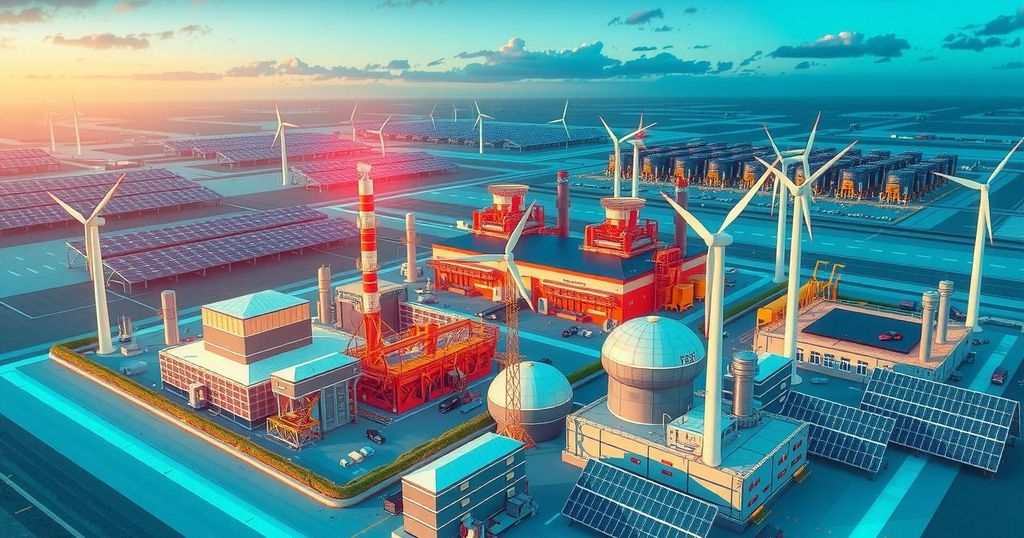AI Chip Manufacturing Threatens Climate Goals Amid Rising Energy Demands
Greenpeace East Asia reported a 350% increase in electricity consumption for AI chip manufacturing since 2023, undermining climate goals. The reliance on fossil fuels for semiconductor production in East Asia poses a significant risk to sustainability targets. Concurrently, an AI-generated paper challenging climate change is criticized for bias and lack of transparency, prompting calls for responsible AI and renewable energy adoption.
A recent report from Greenpeace East Asia reveals a staggering increase in electricity consumption for artificial intelligence (AI) chip manufacturing, which has surged by 350% since 2023. This notable uptick in energy demand poses significant challenges to climate change objectives across East Asia, as countries like Taiwan and South Korea, central to semiconductor production, are becoming increasingly reliant on fossil fuels. The emissions resulting from this industry threaten the region’s sustainability goals, especially as power grids remain largely dependent on non-renewable energy sources.
The report indicates that the electricity usage for AI chip manufacturing is projected to rise dramatically, potentially reaching a level equivalent to the total consumption of Ireland by the end of the decade. As semiconductor plants in the Asia Pacific region seek to satisfy soaring demands, Taiwan has initiated a wave of new fossil fuel plants, with South Korea and Japan following suit through the establishment of LNG facilities. These expansions are frequently justified by the rapid growth of the AI and semiconductor sectors.
Despite the increasing dependence on fossil fuels, the report emphasizes a shift towards renewable energy as a viable alternative. Greenpeace advocates for a collective commitment within the industry to prioritize sustainable energy sources. Companies such as Nvidia and AMD are specifically urged to take accountability for their environmental impact and invest in renewable energy infrastructure.
In a separate thread, researchers have raised concerns about an AI-generated paper rejecting human-induced climate change under the guise of objectivity. The document, authored by Grok 3 AI, has attracted attention among climate change skeptics, claiming neutrality despite underlying biases and the questionable credibility of its co-authors. Experts stress that large language models cannot independently reason, inherently questioning the validity of claims made by AI-generated content.
Furthermore, the AI paper’s reliance on contentious figures in the climate debate raises ethical concerns regarding its objectivity. Critics point out a lack of transparency regarding the prompts used for data analysis, further challenging the credibility of its conclusions. These issues underscore the need for rigorous peer-review processes in AI-generated research.
As emerging technologies, particularly AI, present newfound challenges, experts highlight the imminent dangers of misinformation stemming from generative AI. Deepfakes and erroneous outputs are prompting authorities to establish stricter regulations, particularly within healthcare sectors. The World Health Organization has urged caution amid potential risks, suggesting that integrating enterprise blockchain systems may enhance AI’s reliability and data integrity as it navigates regulatory landscapes.
In conclusion, the surge in electricity consumption for AI chip manufacturing highlights a concerning trend for climate progress in East Asia. The reliance on fossil fuels for semiconductor production threatens regional sustainability targets. Concurrently, the implications of AI-generated content on the climate discourse raise critical questions about objectivity and accountability in research. As the industry grapples with these challenges, a robust commitment to renewable energy and responsible technology deployment is paramount.
Original Source: coingeek.com




Post Comment